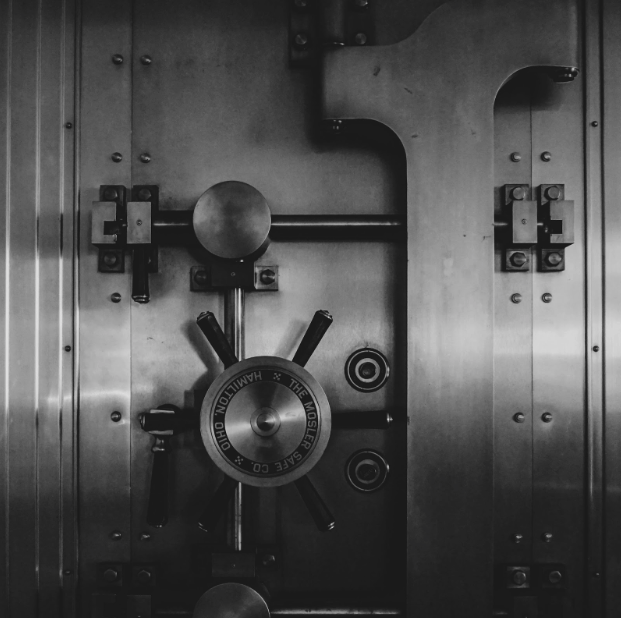In an increasingly digital world, financial transactions have become more convenient than ever. One such transaction method is the Automated Clearing House (ACH) system, which facilitates electronic funds transfers, making it easier to manage bill payments, direct deposits, and more.
However, this convenience comes with a downside: the rise of ACH fraud. In this comprehensive article, we will delve deep into ACH fraud, understanding its mechanics, who is most vulnerable, its impact, and how you can protect yourself against it.
What Is ACH Fraud?
According to TechTarget, Automated Clearing House (ACH) fraud occurs when malicious actors gain unauthorized access to your bank account or financial information and initiate unauthorized ACH transfers. These transfers are then used to siphon off funds from your account to the fraudster’s account.
Unlike credit card fraud, where the victim often has limited liability, ACH fraud can result in substantial financial loss since the stolen funds are directly withdrawn from the victim’s bank account. According to DataVisor, fraudsters employ several strategies to commit ACH fraud, such as ACH kiting, ACH lapping, insider attacks, and phishing.
Who Is Vulnerable?
While anyone can potentially fall victim to ACH fraud, certain individuals and businesses are more vulnerable due to their financial activities. Small companies, for instance, may lack the robust cybersecurity measures that larger corporations can afford. Additionally, individuals who frequently conduct online transactions or share sensitive information online might inadvertently expose themselves to risks. Moreover, individuals who are not well-versed in digital security practices might unknowingly become targets.
Impact of ACH Fraud
According to the Association of Financial Professionals (AFP), 65% of organizations in the country claimed to have experienced ACH fraud attacks in 2022. The impact of ACH fraud can be devastating, causing financial loss, stress, and inconvenience. Unfortunately, the challenge of recovering stolen funds often falls to the victims. Moreover, the aftermath of ACH fraud can also damage your credit score and financial reputation, affecting your ability to secure loans or conduct financial transactions in the future. The emotional toll of being a victim of fraud can also be significant, leading to feelings of violation and insecurity.
How To Detect ACH Fraud
Detecting ACH fraud in its early stages can minimize the damage. There are many steps you can take to detect ACH fraud attempts early, but the best preventative measure is to monitor your bank statements and transaction history regularly. Look out for any unfamiliar or unauthorized transactions and any unusual account activity. Many banks offer real-time alerts for large transactions or balance changes, which can be immensely helpful in catching fraudulent activity promptly. Additionally, consider using personal finance management apps that provide insights into your spending patterns, helping you identify discrepancies.
How To Report ACH Fraud
Taking immediate action is critical if you suspect you’ve fallen victim to ACH fraud. Contact your bank or financial institution to report the unauthorized transactions as soon as possible. They will guide you through the steps to freeze your account and investigate the fraudulent activity. Additionally, you should file a complaint with the Federal Trade Commission (FTC) through their website or hotline. By reporting the incident promptly, you protect yourself and contribute to the efforts to prevent similar types of fraud in the future.
How To Protect Yourself
Mitigating the risk of ACH fraud requires a combination of vigilance and proactive steps to enhance your digital security:
- Secure Passwords: Use strong, unique passwords for your online accounts, and consider implementing two-factor authentication (2FA) where possible. Avoid using easily guessable passwords like birthdays or common words.
- Beware of Phishing: Do not click on suspicious links or provide sensitive information to unknown sources. Today’s fraudsters are smart and know how to get you to bite their bait. Double-check the sender’s email address and verify their legitimacy.
- Regular Updates: Keep your computer, smartphone, and other devices updated with the latest security patches and software updates. Outdated software can have vulnerabilities that hackers can exploit.
- Use Trusted Networks: Avoid conducting sensitive transactions over public Wi-Fi networks, as they can be more susceptible to hacking. Use a virtual private network (VPN) when accessing the internet on public networks.
- Check URLs: Before entering any personal or financial information online, ensure that the website’s URL starts with “https://” and look for a padlock icon indicating a secure connection. Be wary of websites with misspellings or slight variations in the URL.
- Monitor Accounts: Regularly review your bank statements and transaction history to identify any unauthorized or suspicious activity. Set up alerts for any transactions above a certain amount.
Relationship Oriented
Maintaining a healthy relationship with your local bank can provide additional protection against ACH fraud and help you stay informed about their latest security measures. Many banks offer fraud detection services that alert you to unusual account activity. Moreover, having a direct line of communication with your bank can expedite the process of freezing your account and recovering funds in case of fraud.
Keep Your ACH Transactions Safe
In an era where digital financial transactions are the norm, protecting yourself from ACH fraud is paramount. By understanding the nature of ACH fraud and its potential impact and adopting proactive security measures, you can significantly reduce your vulnerability to this type of cybercrime.
Vigilance and education are your strongest allies against fraudsters seeking to exploit your financial information. Stay informed, stay secure, and safeguard your hard-earned money. Now that you know how to prevent ACH fraud, start taking charge of your financial security today and ensure safe ACH transactions with FNB OK.

